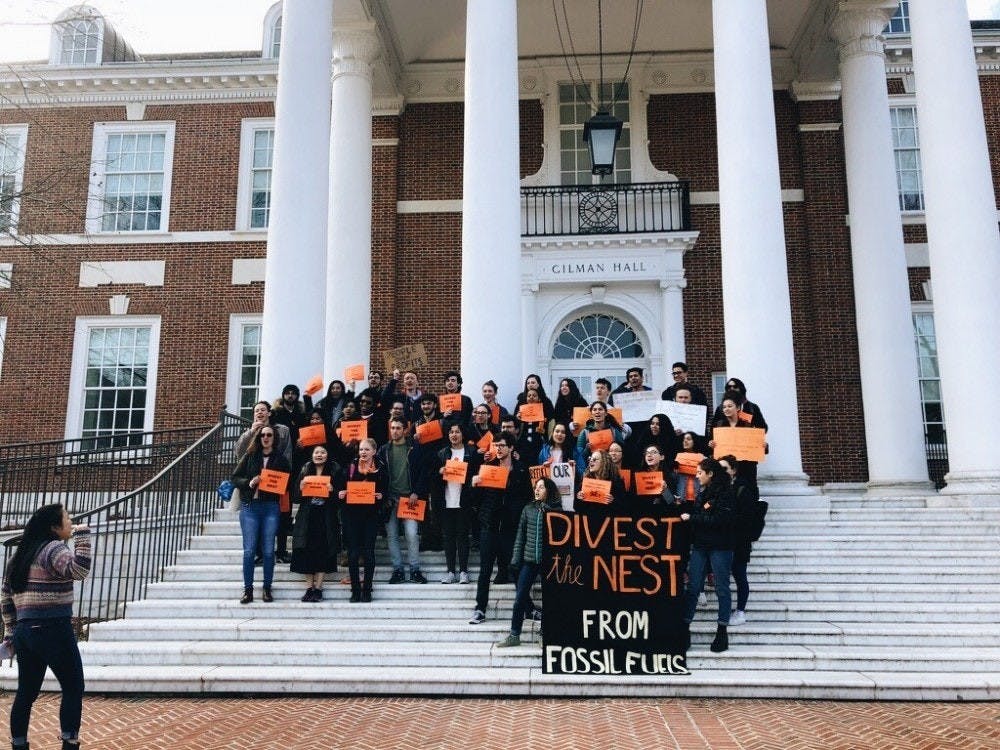The recent report by the Intergovernmental Panel on Climate Change (IPCC) makes it excruciatingly clear that it’s time for us to fully recognize the existential threat of climate change — a danger of our own making, maintained through our neglect to take effective action.
Climate change is the biggest humanitarian crisis today. The already marginalized will suffer the worst of its consequences: exacerbating conditions of poverty, hunger, drought and violence worldwide. We might call the consequences that the IPCC report illustrates as unprecedented, but we’ve been on this trajectory for decades.
For years, students have been satisfied with having more “conversations” about climate change, recycling, or converting to vegetarianism or veganism. Those actions aren’t bad, but they just aren’t enough. Climate change, while affecting all individuals, is a systemic issue that must be addressed on a systemic level.
As young people learning about the world in the interest of improving it, we have an inherent stake in the safety and sustainability of our planet and the societies that depend on it. As college students, we occupy a unique, albeit temporary, position of privilege to impact that future. As clients of this University, we render the administration accountable to our demands.
Fighting against climate change, as we’ve seen, is far from an easy task. We must first be clear about who the culprits of our climate change crisis are. However tempting it might be, don’t look to blame your roommate who never turns off the lights, the person who keeps on bringing Starbucks cups complete with a green straw to your class or even yourself.
Our society is heavily dependent on fossil fuels — from the clothes we wear, the food we eat, the cars we drive, to the buildings we live and work in. What individual consumer actions would be useful for us to take? Could someone without economic choice take the same actions? The answer is an agonizing no. Fossil fuels wholly encompass our modern lives, and individual actions can feel futile and insignificant. Our individual lifestyle choices do matter, but they don’t dig at the root of the problem.
The continued prosperity of fossil fuel companies comes from institutional complicity with a corrupt system. The government continues to side with fossil fuel companies, giving permission for pipelines to be built and awarding positions of power to fossil fuel moguls (hello, Rex Tillerson!). Universities like Hopkins invest in fossil fuel companies for profit.
With little hope for political or institutional change, individuals might feel left to their own devices for understanding how they may have impact. We might feel good about refillable water stations, composting and using cold water in our laundry cycles, but there is nothing stronger than our collective voices.
Rather than allowing governments and corporations to outsource the responsibility of sustainable practices onto citizens, we must demand that these powerful institutions take ownership for the global environmental suffering they have perpetuated.
The IPCC estimates that on the current trajectory of global emissions we are on, the world would warm as much as three to five degrees Celsius. The consequences of two-degree warming are frequent wildfires and heat waves plaguing areas across the globe, the extinction of almost all coral reefs, and high rates of drought and flooding. In other words, our food supply and economy will be highly unstable. People, particularly those in poverty, will die.
Now is the most important time for us to utilize our social capital as both clients and representatives of Hopkins. We, as students and future graduates of Hopkins, are capable of influencing external perceptions of the institution. We have to expose ties that Hopkins has with fossil fuel companies and demand that we end our complicity in exacerbating climate change.
We have the power to end our University’s active complicity with fossil fuel companies. We can demand that our University’s funds be directed toward cultivating a healthier, more sustainable and just future where students can continue to learn, rather than participate in its destruction.
One demand we can make as student activists is fossil fuel divestment: the University removing all of its holdings in fossil fuel companies from its endowment. Of course, divesting would not solve climate change. Our University’s monetary influence on the activities of fossil fuel companies is relatively small compared to the enormous budgets of these companies.
But by helping to establish an institutional norm of divestment as the responsible and necessary tactic in today’s urgent climate, we can simultaneously exercise our voice and power as students and participate in substantive and imperative social, political and environmental global change.
This is our duty as students: to use positions of privilege and influence to take action toward climate justice. The earth clearly isn’t waiting for us to mistreat it for longer. If we want any chance of saving the environment and humanity dependent on it, our actions need to attack systems loudly and urgently through collective action.
Clarissa Chen is a senior studying Public Health, Global Environmental Change & Sustainability and Social Policy from Bloomington, Ind. She is a lead organizer of Refuel Our Future.
Barae Hirsch is a sophomore studying Sociology and International Studies. She is a member of Refuel Our Future.





